News & Events
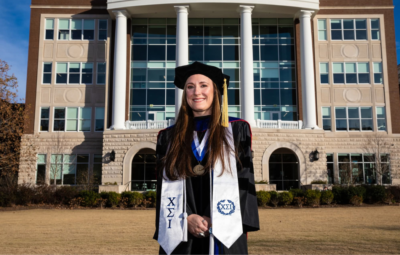
Introducing Dr. Leslin Ossoff, PhD, Regional Clinical Manager at YBGR
Learn how Dr. Leslin Ossoff earned her PhD and leads with research-informed care as Regional Clinical Manager at YBGR ...
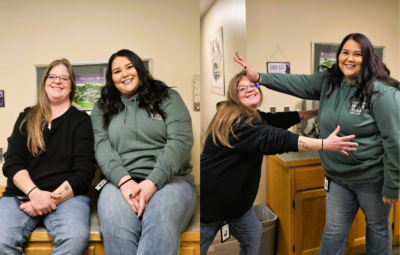
How Leadership Shapes Professional Growth — Fallon Hain’s Story
Fallon Hain’s story highlights how leadership shapes their team's professional growth and strengthens care for kids ...
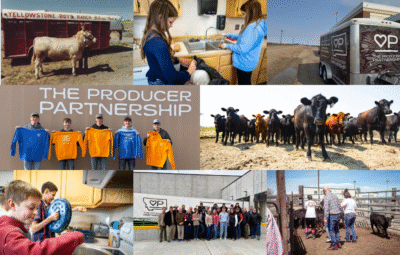
Montana-Raised Beef Now Being Served at the Ranch
Learn how Montana-raised beef at the Ranch is supporting kids’ nutrition through Homes for Heifers donations and The Producer Partnership ...
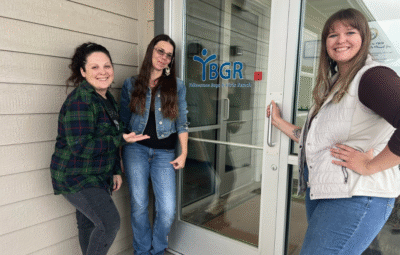
Caring for Montana Kids: A Look Back at 2025
A look back at 2025 moments that shaped our mission, team, and the kids and families we serve across Montana ...
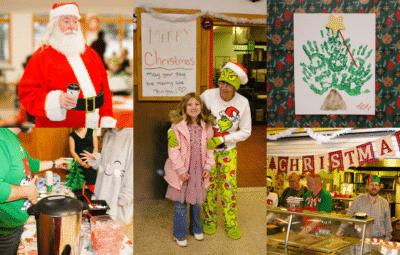
Christmas Eve Breakfast at the Ranch — A Holiday Tradition
A look inside our annual Christmas Eve breakfast at the Ranch and how the tradition brings meaning to the holidays ...

Shelby Community Stroll: A Sweet Holiday Tradition
Our Shelby team shows up year after year for their local holiday stroll event, building community connection through a shared ...
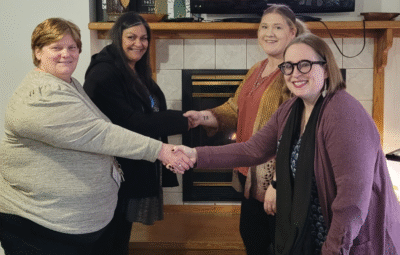
YBGR Partners With Many Rivers Whole Health to Strengthen Youth Transitions to Adult Care
Strengthening how we’re transitioning youth into adult mental health care through a partnership with Many Rivers Whole Health in Great ...
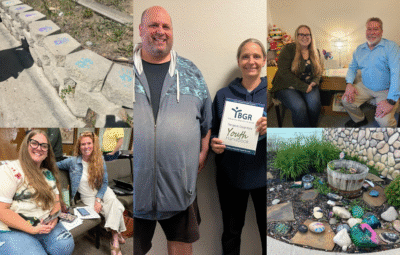
Youth Satisfaction Survey Highlights the Power of Caring People
Recent youth satisfaction survey results show how caring people are making an impact in our therapeutic group homes ...
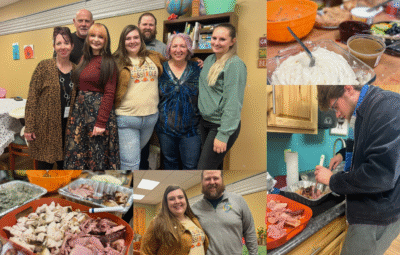
Annual Kalispell Thanksgiving Dinner Brings Families Together
Our Child Welfare Prevention and Support Services team brings families together for a Thanksgiving tradition rooted in connection ...
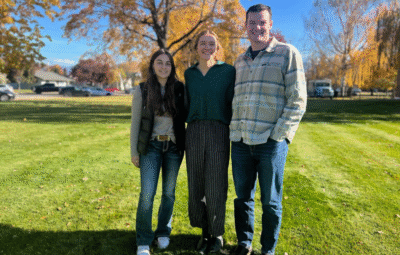
YBGR Polson Expands Community-Based Care in Lake County
YBGR Polson delivers community-based care in Lake County, helping youth and families grow stronger together ...
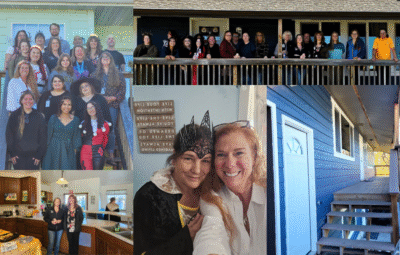
Celebrating the Reopening of Our River’s Edge Group Home Space
Caring people from across Montana gathered to celebrate the reopening of our River’s Edge space, one of our group homes ...
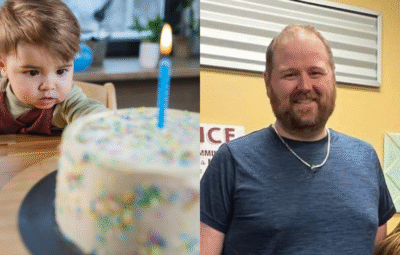
Strengthening Families in Montana: Small Acts of Care
A story from Kalispell shows how strengthening families in Montana begins with care, compassion, and simple acts that matter ...

Closing the Season in the Indigenous Garden
The Indigenous Garden at YBGR ends its growing season, celebrating abundance, community, and the cycle of renewal ...
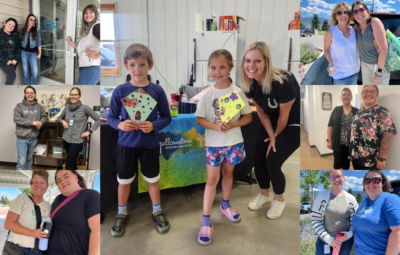
What Difference Can One Year Make for Montana Youth Mental Health?
One year after joining forces, YBGR and YDI are improving Montana youth mental health through expanded care and stronger systems ...
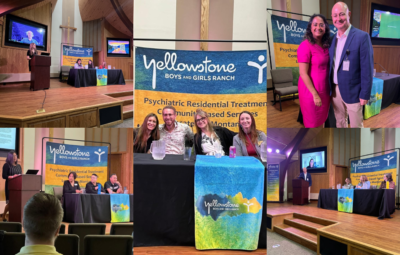
Leaders Unite to Strengthen Care for Kids at the Yellowstone Conference
Montana leaders gathered at the Yellowstone Conference to strengthen partnerships and improve care for kids and families ...
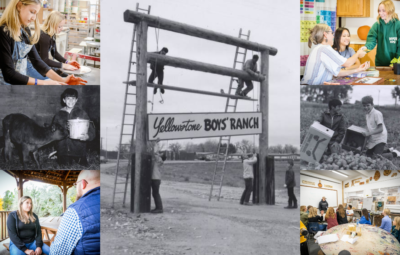
1956 Marked the Start. 1957 Made It Real. A Legacy of Caring Still Growing
In June of 1957, we welcomed our first child to the Ranch. Explore our history of caring for youth and ...

Beyond Medication: Practical Approaches for Depression and Suicidality in Clinical Practice
Earn 1.5 CE hours while exploring innovative treatments for depression and suicidality at this Montana Psychiatry event hosted at the ...
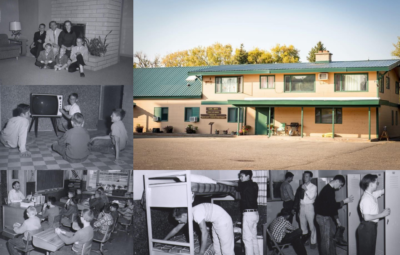
Honoring the Legacy of Orth Lodge
Orth Lodge was the first building at Yellowstone Boys and Girls Ranch. To this day, it continues to stand as ...
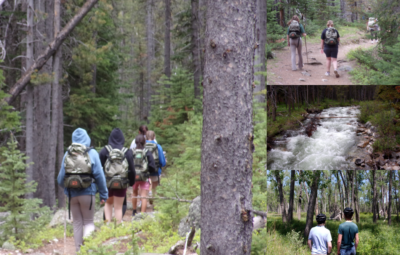
Healing Outdoors Under the Big Sky: Kids at the Ranch Hit the Trails
Kids at the Ranch hiked the Absaroka-Beartooth Wilderness, discovering joy, resilience, and the power of healing outdoors in Big Sky ...
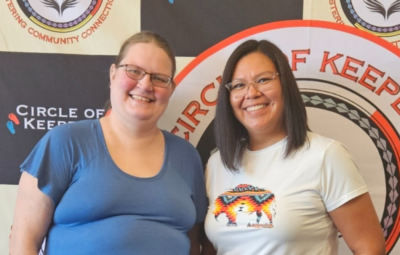
Training Strengthens Support for Native Youth in Foster Care
Training equips YBGR staff with tools to support Native youth in foster care, honoring culture, tradition, and healing ...

Yellowstone Conference: Stronger Together, Building Strategic Partnerships for Lasting Impact
Join us October 2nd for the Yellowstone Conference, where leaders will come together to spark collaboration for lasting impact ...

Yellowstone County organizations requesting community help this back-to-school season
Learn how you can support kids at Yellowstone Boys and Girls Ranch and Yellowstone Academy during back-to-school season ...
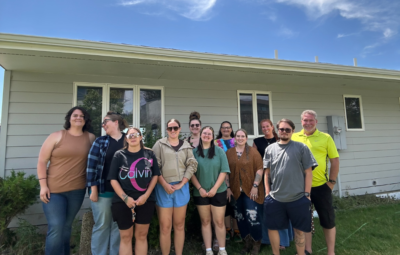
YBGR Group Homes Collaborate, Bringing Billings and Great Falls Teams Together
YBGR group homes collaborate as Billings and Great Falls teams gather for connection, shared learning, and mission-aligned support ...
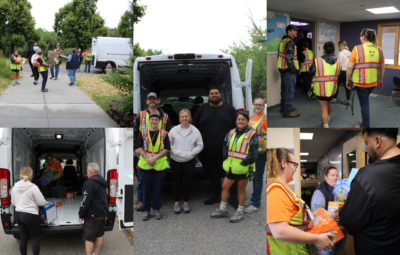
Amazon Brings Pizza, Smiles, and Care to the Ranch
When Amazon brings pizza to the Ranch, it’s more than a delivery—it’s an act of care that makes a big ...

Museum Trip Celebrates Growth for Kids in YBGR’s Community-Based Services
A museum trip gave kids in YBGR’s community-based services in Butte a chance to celebrate progress and spark curiosity through ...

Update from CEO Mike Chavers Regarding Former Employee John Whiteside
CEO Mike Chavers addresses recent media coverage and reaffirms YBGR’s commitment to youth safety and transparency ...
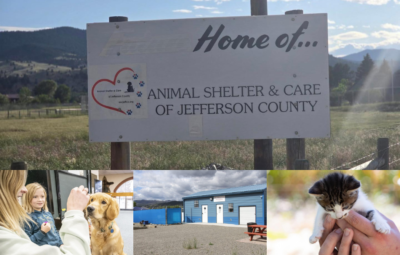
Kids at YBGR’s Boulder Group Homes Make a Lasting Impact at Local Animal Shelter
Youth from YBGR’s Boulder Group Homes volunteer at ASCJeffco—building skills, connection, and community through care ...

4th Annual Chili Cook-Off at the Ranch
Join us Sept. 25th for Yellowstone Foundation’s 4th Annual Chili Cook-Off—food, fun, live music, and more! Proceeds support programs for ...
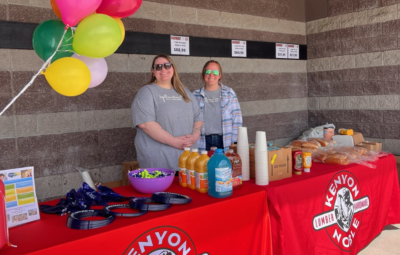
YBGR Staff Give Back: 4,238 Hours of Volunteering Across Montana
YBGR staff spent 4,238 hours volunteering across Montana, showing how caring people strengthen communities ...
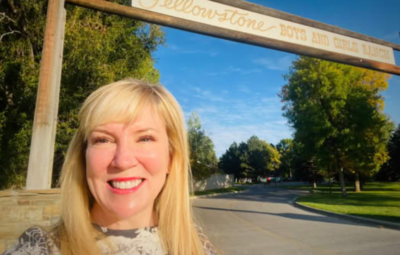
Dr. Jane Gillette Appointed Board Chair at YBGR
Dr. Jane Gillette appointed Chair of the Yellowstone Boys and Girls Ranch Board of Directors, effective July 1st, 2025 ...
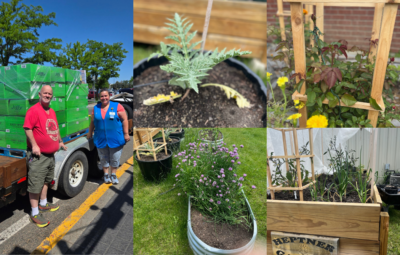
Walmart’s Generosity Helps Yellowstone Youth Gardening Thrive
Walmart’s support helps Yellowstone youth gardening thrive by giving kids hands-on skills, confidence, and healing through nature ...
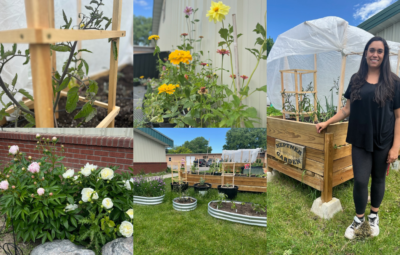
Yellowstone Academy Gardening Takes Root
Yellowstone Academy gardening teaches youth life skills and resilience while nurturing healing through hands-on projects ...
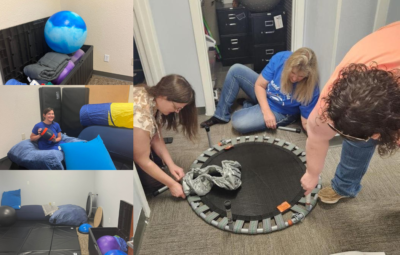
New YBGR SMART Rooms Are Helping Montana Kids Heal
New SMART rooms are helping YBGR youth heal across Montana through a trauma-informed approach that uses movement and sensory tools ...

A Day to Remember: Yellowstone Academy Graduation, Class of 2025
Yellowstone Academy graduation marked a milestone for the class of 2025—celebrating years of growth, care, and perseverance ...

MMIP Awareness Month: Honoring Lives and Raising Voices at the Ranch
Youth at YBGR led a powerful vigil for MMIP Awareness Month, raising voices for justice, safety, and visibility in Native ...

YBGR Celebrates MSW Carroll College Graduates
YBGR celebrates staff earning MSW degrees from Carroll College as they grow their careers in youth mental health across Montana ...
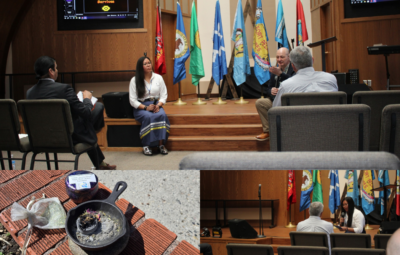
Tribal Leaders Visit for Closer Look at Native American Services
Tribal leaders visit YBGR to explore how Native American Services strengthens culturally connection for youth across Montana ...
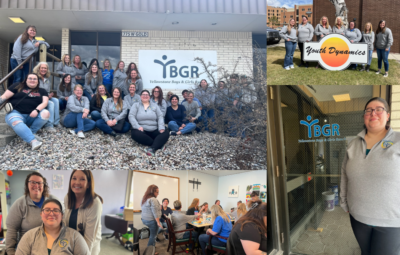
YBGR Butte Gathers to Honor the Past and Celebrate the Future
Our YBGR Butte team celebrated the rebranding of their office—honoring decades of service and a stronger future for youth ahead ...
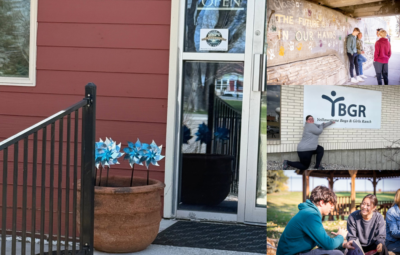
Strengthening Families Month— Stronger Families, Stronger Futures
April is Strengthening Families Month. Learn how we support more than 3,600 youth and families across Montana through care and ...

Butte Community-Based Services Brings Easter Joy to Youth and Families
Our Butte community-based services team hosted Easter celebrations with egg hunts, crafts, and connection for youth and families ...

YBGR Sponsors Pheasants Forever with Student-Raised Birds
Yellowstone Academy students raised and donated 50 pheasants to support Pheasants Forever, blending youth development with conservation ...
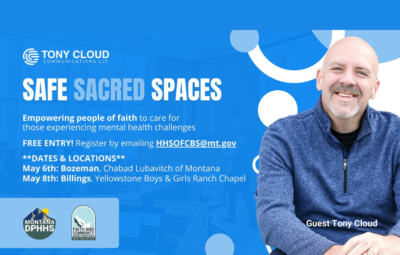
Safe Sacred Spaces Conference — Thursday, May 8th
Join us in Billings for Safe Sacred Spaces—faith-based training to recognize and respond to common mental health challenges ...
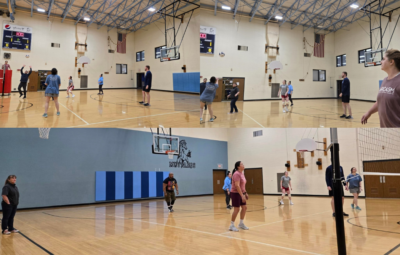
Youth Wrap Up Volleyball Season with Match Against Staff
Youth at YBGR wrapped up volleyball season with a fun, hard-fought match against staff—celebrating growth, teamwork, and heart ...

YBGR Shelby Pedals for a Purpose at CycleMT Fundraiser
YBGR Shelby joined Logan Health’s CycleMT to raise funds for Montana kids needing medical care. A ride with heart—and impact ...

YBGR Brings Mental Health Care to Schools Across Montana
Bringing mental health care into schools, YBGR partners with 24 Montana districts to help kids build resilience and thrive ...

6 Months Strong: Reshaping Youth Mental Health Through Integrated Care
Six months into partnering with YDI, YBGR is expanding access and helping Montana kids get timely support through integrated care ...

Amazon Brings Smiles (and Snacks) to the Ranch
Amazon's snack donation brought joy, smiles, and a powerful message to kids at the Ranch in Billings—they matter ...

New Signs, Mission Shines! New YBGR Signage Arriving Statewide
New YBGR signage is rolling out statewide—bringing a unified look to the spaces where our mission comes to life ...

YBGR Students at Yellowstone Academy Take the ACT
YBGR students at Yellowstone Academy take the ACT, marking a key step toward college and future opportunities ...

Renovations Underway at River’s Edge Group Home
Renovations underway at River’s Edge Therapeutic Group Home in Billings expand and strengthen care for Montana youth ...

A Timeline of Impact: Exploring YBGR History
History brought to life! Our timeline showcases decades of impact, growth, and a mission that has stood strong for 67 ...

43 Years of Caring: Laurie Moore’s Legacy at YBGR
Laurie Moore celebrates 43 years at YBGR! Her commitment has shaped lives and strengthened our mission for over four decades ...

Honoring Remarkable Women – meet YBGR’s Jasmine Hansen
Hello Montana honors Jasmine Hansen, PR Coordinator, as a Remarkable Woman of Montana for her dedication to youth and work ...

Strength in Tradition: Youth in Wellbriety Create Medicine Wheel
Youth in Wellbriety at the Ranch created a Medicine Wheel, connecting culture, healing, and recovery through Native American tradition ...
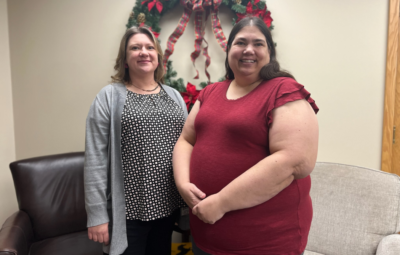
YBGR’s Supported Employment Program Helps Youth Thrive
YBGR's Supported Employment Program equips youth in Yellowstone County with skills, jobs, and confidence for lifelong success ...
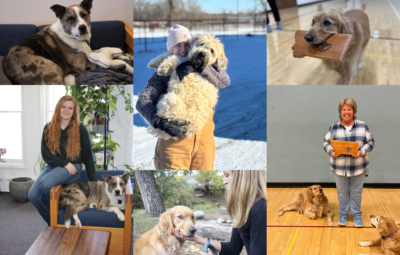
Therapy Dogs Help Kids Heal at the Ranch
Meet the therapy dogs helping kids heal, build trust, and find emotional stability at Yellowstone Boys and Girls Ranch ...
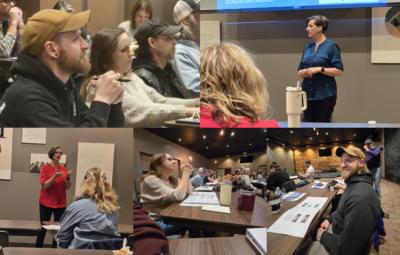
Investing in People — YBGR Staff Take Part in CISM Training
YBGR staff complete CISM training, gaining tools to support teammates coping with stress and secondary trauma ...

Kids in Butte Community-Based Services Celebrate Valentine’s Day
The kids in our Butte community-based services celebrated Valentine’s Day with creative expression and connection! ...

McVay Lodge Reopens With a Refresh Thanks to HB 872 Grant
McVay Lodge reopens with upgrades, expanding care for Montana kids. Thanks to HB 872, more youth can receive treatment close ...

Yellowstone Academy Student Artwork Brings Learning to Life
Yellowstone Academy fosters creativity and growth for students in residential care—see how student artwork brings learning to life ...

Lisa Frazier — Celebrating 42 Years of Service
Lisa Frazier retires after 42 years at YBGR, leaving a lasting impact on youth through recreational therapy program ...

Handprints of Hope from Our Native American Services Program
Celebrating the graduates of our Native American Services Program and the 3,600 kids we served statewide in 2024 ...

Reaching More Kids Through Residential Care at the Ranch
The Ranch hit a peak census of 91 kids in PRTF care at one time in 2024—providing lifesaving treatment close ...

Governor Gianforte Visits YBGR to Discuss Youth Mental Health in Montana
Governor Gianforte visits YBGR to discuss youth mental health in Montana, tour the campus, and hear success stories ...

Youth Dynamics Joins Forces With YBGR for Montana Kids
Youth Dynamics and YBGR unite to expand mental health care for Montana’s kids, offering seamless, statewide support ...
